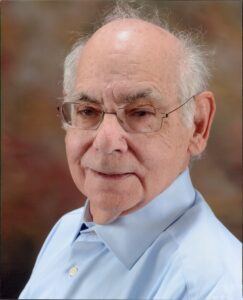
Living the VUCA Life
Coronavirus has unexpectedly disrupted our lives. The daily events that create our sense of normalcy have been quarantined until an unknown future date. Our world is suddenly even more volatile, uncertain, complex and ambiguous (VUCA). We are lacking in our two keys to confidence in our decision making:
- How much do you know about the actual situation? What’s really happening?
- How accurately can you predict the outcomes of your actions in the actual situation?
OODA Loop to SOODA Loop
Col. John Boyd, USAF, developed what he termed the OODA Loop decision-making model to describe gaining clarity of thinking during the fog of war. Boyd envisioned the decision cycle consisting of Observation, Orientation, Decision, Action. In working with my clients, I add Sensing to Boyd’s model to make the SOODA model.
Here’s how the SOODA model works:
Sense
We sense and feel in our gut and emotions something is about to happen, change, is different, or possible.
Observe
We observe available real-time information about the situation.
Orient
We orient ourselves to the new reality as it is presented by making sense out of our observations using our individual values-system, experiences, knowledge base, culture, biases, and beliefs.
Decide
We reach a decision as to what is our best course of action to take in the situation to gain our desired outcomes.
Act
We act in our best interest.
We then to the beginning and sense then observe is our actions have had their desired effect.
SOODA Keeps Us In-Control
Effectively using our SOODA Loop to make decisions in VUCA situations allows us to remain in as much control as possible of our attitudes and behaviors. It prevents us from becoming stuck or frozen in uncertainty and fear, thus missing an opportunity to make a favorable time-sensitive decision.
Stuck in SOO-SOO-SOO
Unfortunately, we often get stuck in the SOO part of the SOODA Loop. Suffering from analysis paralysis, we fail to make a timely decision. “We don’t have enough information.” “Let’s run another simulation.” “I need to review the data again.” “What if I’ve got this wrong?” are all symptoms of a potentially fatal case of the SOODA Loop virus infecting one’s thinking and making clarity and confidence nearly impossible. One cannot afford to hyper focus on familiar or favorable indications at the expense of unfamiliar or unfavorable data.
What can you do to break free of a stuck SOO?
Don’t ignore your feelings and gut. Take time to sort out what you are sensing and what is triggering these senses.
Rate your observations. Are other people you respect observing the situation in the same ways you are? Is what you are observing first-hand or from a reliable source? Are you able to observe the whole picture? How confident on a scale of 10 to 1 with 10 being rock solid, bet your life on it, are you in the accuracy of your observations? Can you have an outsider evaluate your interpretations?
Orient toward something that makes the most sense. Remember, the simplest explanation to what you are observing is likely the most accurate and truthful. Who is available with expert knowledge or experience to guide you? Ask for different sense making stories from trusted people also dealing with the situation. What are you most certain and uncertain about in the situation? Is it possible to become more certain or is there not enough time/resources to do so? How can you manage around the uncertainty to minimize negative impacts of the unknown or uncertain elements of the situation? What’s the worst that can happen? What is the probability the worst will happen? How can you deal with the worst-case scenario if it does happen?
Decide on what action you can take now and then next. Making even a small decision to act can break you free from the SOO loop and moving forward. You action will have some observable outcome and allows you to begin the SOODA Loop with additional insight and experience. This can make you more confident in making your next decisions to act based on your new learning.
Act in your best interest with your best effort and consistent with your orientation and desired outcomes.
Need Help Getting Unstuck?
If you are SOO stuck, perhaps come executive coaching can help you get moving forward like it has helped other clients of mine. I’d be happy to talk with you to see we can get you some clarity and confidence back in these VUCA times we live in. You can contact me at andy@adgrowthadvisers.com or call or text for an appointment at 317-538-3231.
“We stand on a mountain pass in the midst of whirling snow and blinding mist, through which we get glimpses now and then of the paths which may be deceptive. If we stand still we shall be frozen to death. If we take the wrong road we shall be dashed to pieces. We do not certainly know whether there is any right one. What must we do? Be strong and of good courage. Act for the best, hope for the best and take what comes. If death ends all, we cannot meet death better.”
William James
About the Author
Andy Dix, MS, BCC, CPT is President of AD Growth Advisers Inc. an Indianapolis, Indiana Executive Business Coaching and Training firm. Andy is a Board-Certified Executive Business Coach, Certified Performance Improvement Technologist and Change Manager. He is a Certified Reiss Motivation Profile® Master and Certified Trainer for the Reiss Motivation Profile®. You can contact Andy at Andy@adgrowthadvisers.com or call/text him at 317-538-3231.
©Copyright 2020 AD Growth Advisers Inc. All rights reserved.
Views: 42

